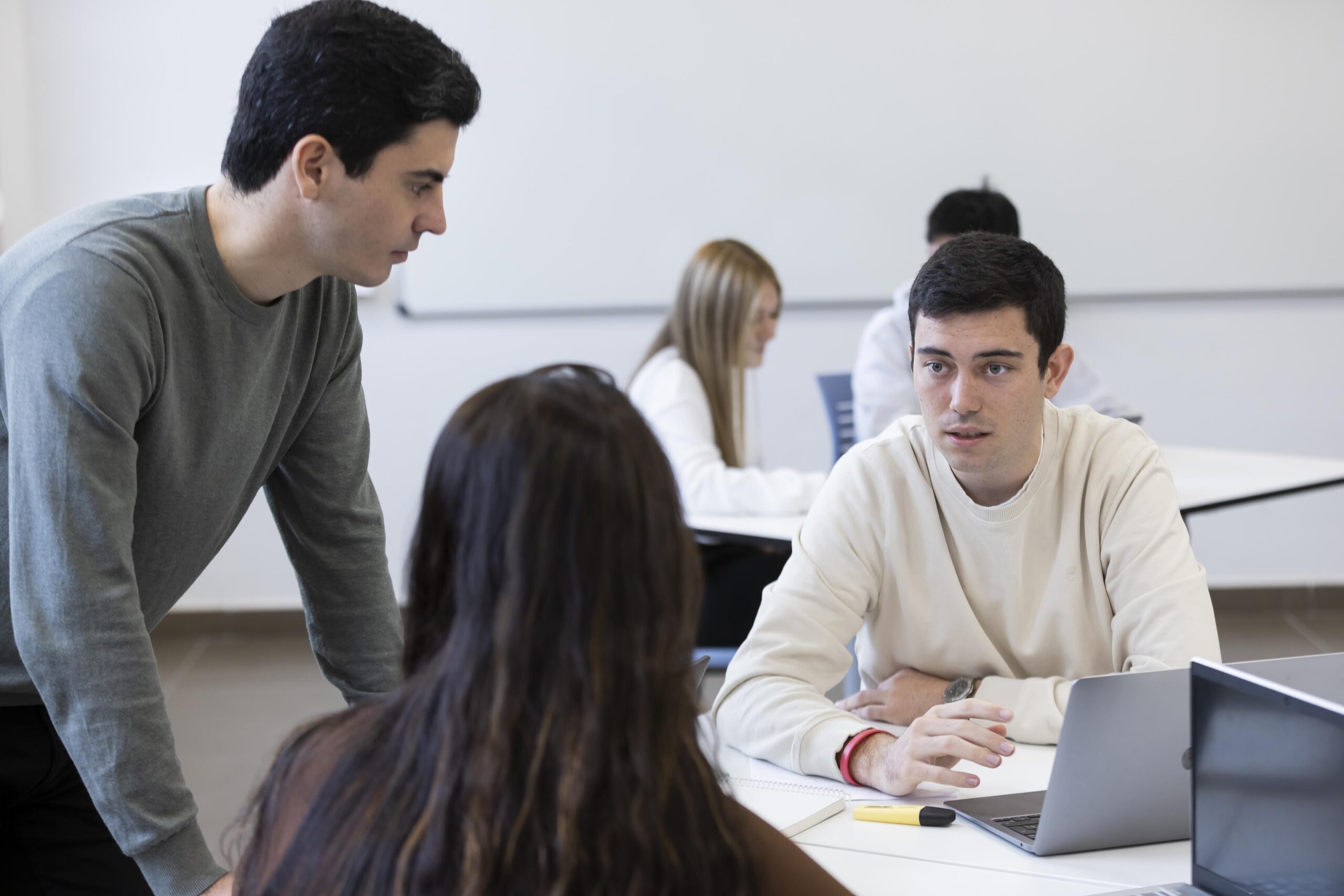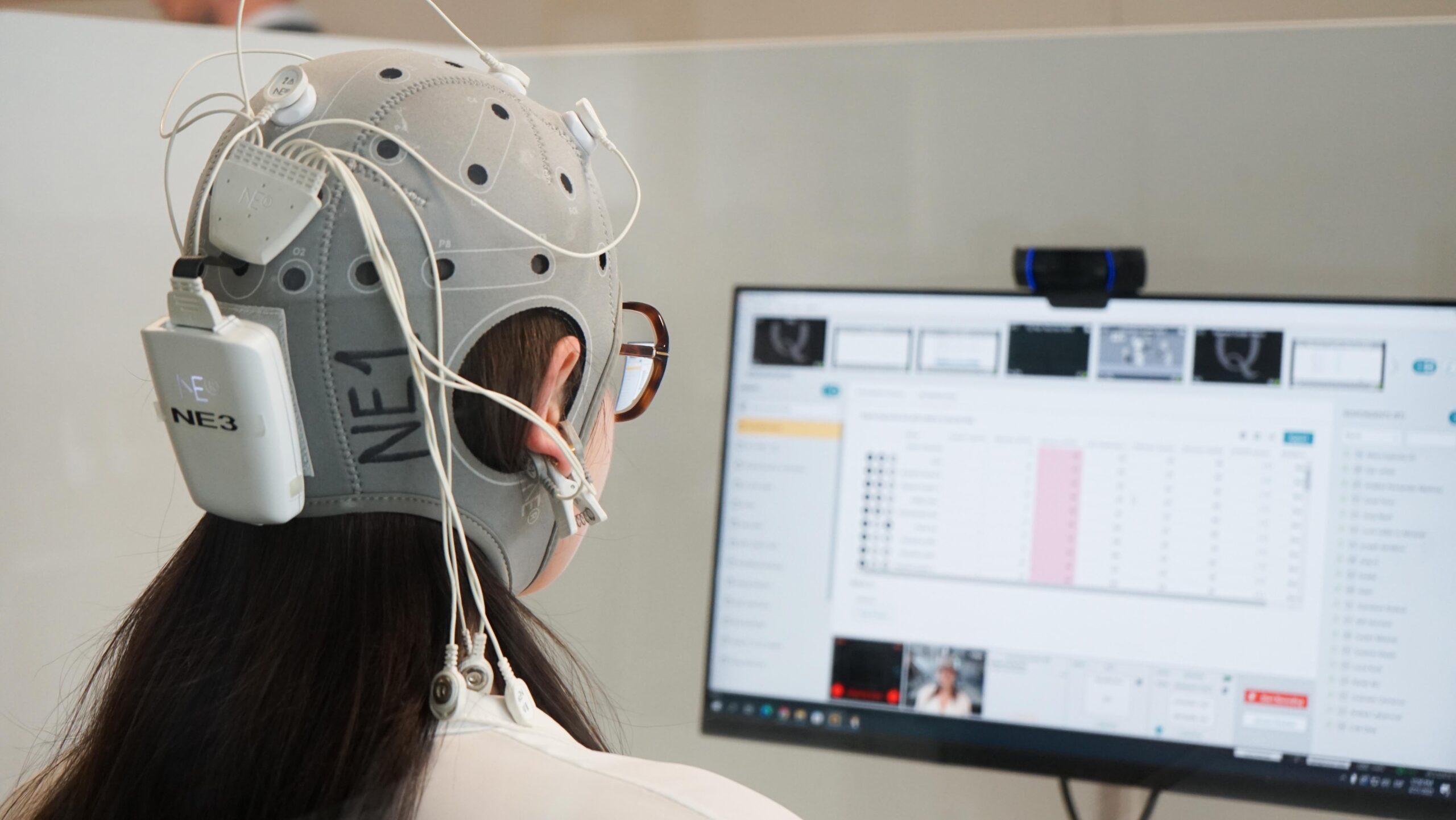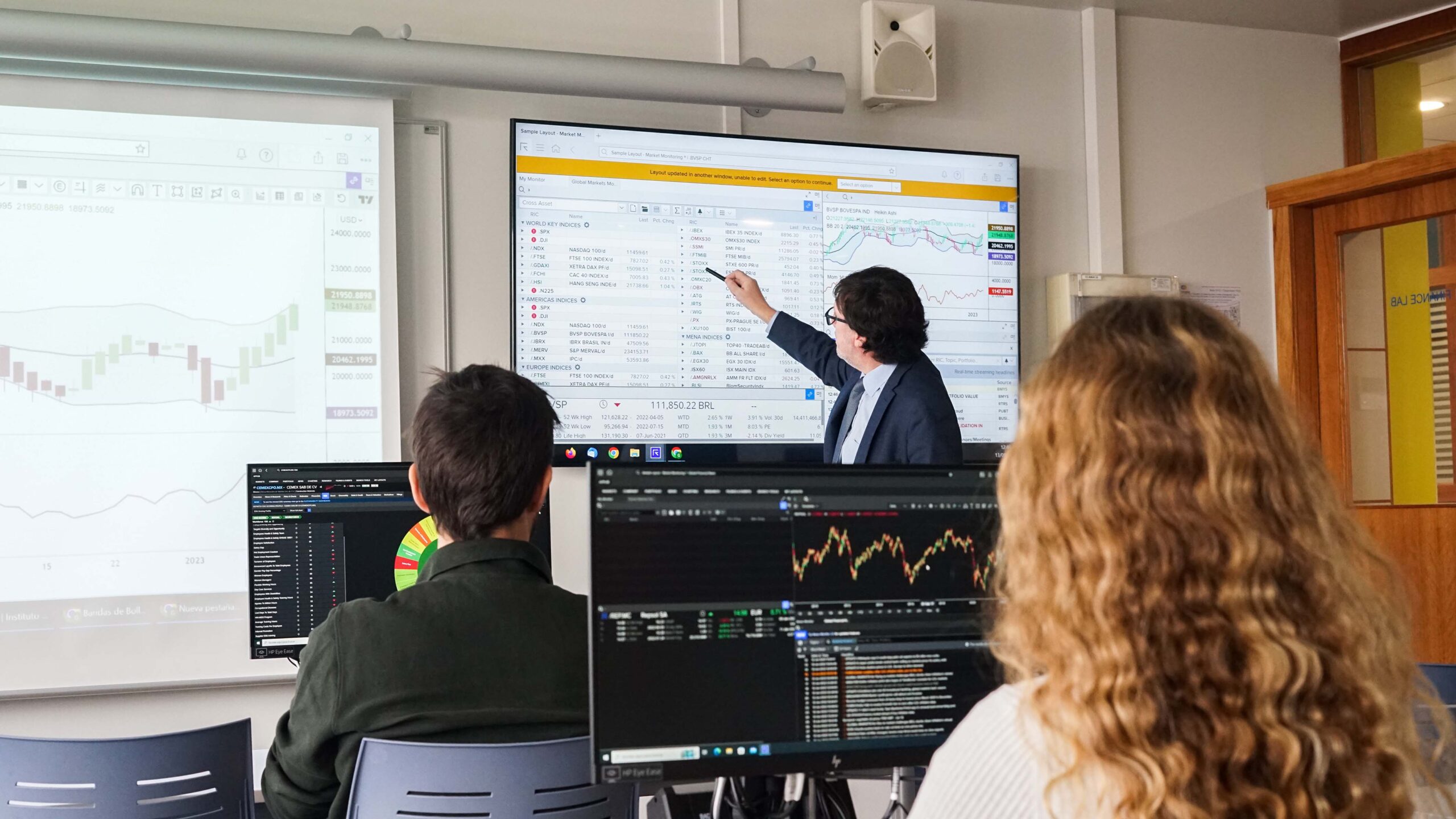The thesis defence must be carried out at the university in which the doctoral student was enrolled. Regarding joint doctoral programmes, the thesis defence can be conducted at any of the participating universities or in accordance with the terms indicated in the corresponding partnership agreement.
Studies
Bachelor's Degrees
Dual Bachelor's Degrees
School of Engineering and Management
Dual Bachelor’s Degree in Chemistry and Business Administration and Management Dual Bachelor’s Degree in Chemical Engineering and Business Administration and Management Dual Bachelor’s Degree in Biotechnology and Business Administration and Management Dual Bachelor of Engineering Degree in Industrial Engineering and Business Administration and Management Dual Bachelor’s Degree in Chemistry and Chemical Engineering Dual Bachelor’s Degree in Tourism and Hospitality Management and MarketingMaster's Degrees
School of Engineering
Master’s Degree in Analytical Chemistry Master’s Degree in Pharmaceutical Chemistry Master’s Degree in Chemical Engineering Master’s Degree in Industrial Engineering Master’s Degree in Bioengineering Master’s Degree in Biopharmaceutical Business Master’s Degree in Cosmetics and FragrancesSchool of Management
Master’s Degree in International Marketing in a Digital Environment Master’s Degree in Wealth and Financial Management Master’s Degree in Industrial Business Management Master's Degree in Neuromarketing Master's Degree in Accounting, Data Analytics and ESG Reporting Master in Applied International DevelopmentDual Master’s Degree
School of Engineering and Management
Dual Master’s Degree in Analytical Chemistry and Industrial Business Management Dual Master’s Degree in Pharmaceutical Chemistry and Industrial Business Management Dual Master’s Degree in Bioengineering and Industrial Business Management Dual Master’s Degree in Chemical Engineering and Industrial Business Management Dual Master’s Degree in Industrial Engineering and Industrial Business Management Dual Master’s Degree in Industrial Engineering and Chemical Engineering Dual Master’s Degree in Biopharmaceutical Business and Bioengineering Dual Master’s Degree in Biopharmaceutical Business and Pharmaceutical ChemistryPhD
Executive Education
Másters
Máster en Dirección de Operaciones Máster en Dirección de Compras Estratégicas Máster en Dirección de Empresas Hoteleras Máster en NeuromarketingPosgrados
Posgrado en Ingenería de Plantas Farmacéuticas Posgrado Product & Process Engineering Managament Posgrado Manufacturing Plant Leadership Posgrado Global Logistics & Supply Chain Management Posgrado en Gestión Estratégica de Compras (MIP) Posgrado en Perfumes y Fragancias, Mercado y Aplicaciones Posgrado en Gobierno y Dirección de la Pyme (Vértice)PhD in Business and Territorial Competitiveness, Innovation and Sustainability
The IQS School of Management, the Faculty of Economic and Business Sciences at the University of Deusto (DBS Deusto) and the Faculty of Economic and Business Sciences at Pontificia Comillas University (ICADE) have combined forces to offer a joint doctoral programme in Business and Territorial Competitiveness, Innovation and Sustainability (CETIS).
This programme has been created within the framework of the Aristos Campus Mundus 2015 Campus of International Excellence, whose initiative is the result of the strategic partnership between three socially committed universities (the University of Deusto, Comillas Pontifical University and Ramon Llull University). This alliance is also backed by advanced strategic cooperation agreements with Georgetown University, Boston College and Fordham University.
Key points
Number of spots available
Barcelona: 6 Bilbao: 4 Madrid: 12 San Sebastián: 8
Language
The programme can be done entirely in English.
Areas
Business and territorial competitiveness Organizational management and business competitiveness
Facilities
State-of-the-art management labs.
Objectives
The PhD in Business and Territorial Competitiveness, Innovation and Sustainability enables students to delve into the various factors that impact competitiveness for companies and territories in order to contribute to the economic and social development of the world in which we live. The programme places a special emphasis on innovation as a critical factor for competitiveness and on sustainability as a key preservation element to ensure the well-being of future generations. To do so, the programme provides a solid and rigorous academic foundation in research methodology.
The search for better solutions to enhance competitiveness for companies and territories requires not only financial resources, but also – and above all – research and innovation capacities and the ability to manage research and innovation to facilitate the effective employment of financial resources to turn them into innovations that support sustainable competitiveness.
Within this context, students will strengthen their research skills based on the needs of business R&D departments and, from a more systemic perspective, the needs of the research centres or departments at universities, technology centres, consultancies and institutes, essential for meeting established objectives.
Meet a PhD student

Educational activities
IQS doctoral programmes include cross-disciplinary and specific research activities within the scope of each programme. These activities are aimed at preparing excellent new researchers and optimally developing their research skills.
The activities are distributed throughout the course load and include courses, sessions, seminars, conferences, publishing articles, and international exchanges.
The activity programming aims to ensure that students have excellent international experiences, preferably through exchanges at foreign universities or research centres, doing international theses, participating in international conferences, and inviting visiting professors to campus.
- Ethics in research seminar
- Thematic courses on research skills
- Research seminars
- Presentations at conferences
- Exchanges at other research centres
The training activities for the 2025-26 course are the following:
- Advances in Business and Management Research
- Data Exploring with Tableau
- Event Studies
- How to apply for an obtain a research project
- Panel Data Analysis
- Fundamentals of Machine Learning
- Ethics and Research
In addition to the activities available at IQS, the interuniversity programme offers other educational activities with the Universidad de Deusto and Universidad de Comillas. Students in the programme can engage in educational activities at any of the participating universities.

Additional coursework
PhD candidates who have not completed a research master’s degree or do not hold a research proficiency certification or an Advanced Studies Diploma must take additional coursework in order to acquire the basic methodological competencies established in a master’s degree with a profile similar to the doctoral programme.
Research methods I: compiling data, information sources, and quantitative research methods (6 ECTS).
Research methods II: epistemology of science, qualitative research methods, and drafting scientific texts (6 ECTS).
Access and Admision
In addition to the general requirements that all applicants must meet in order to access doctoral studies, candidates must also meet the specific requirements for this programme and be accepted to conduct their doctoral thesis with a research group within the IQS School of Management.
Specific Requirements
Applicants must have completed an official master’s degree in the area of economics and/or business, preferably with a research profile.
Applicants must have obtained a C1 or equivalent level English language certificate. This level means that an individual can understand a wide range of more demanding, longer texts and recognize implicit meaning in them; can express him/herself fluently and spontaneously without much obvious searching for the right expression; can use language flexibly and effectively for social, academic, and professional purposes; and can produce clear, well structured, detailed text on complex subjects, showing controlled use of organizational patterns, connectors, and cohesive devices.
The following will also be highly valued for applicants:
- Excellent grades in their undergraduate studies.
- Excellent grades in their master’s degree studies in the field of economics and/or business.
- Interest in the doctoral programme’s research lines.
- Research experience in the field (participation in research projects, publications, etc.) prior to entering the doctoral programme.
- Continuing education related to the field.
- Professional or volunteer experience in the field.
- Study abroad experiences.
- Defined professional objectives, research goals, and personal maturity.
- Availability to carry out the activities established in the programme and exchanges at other universities and research centres in particular.
- A research grant awarded by a national or international body based on an assessment of the applicant’s curriculum vitae.
- All applicants must provide a Personal Financial Statement with supporting documents to prove they can fund their PhD (academic and living expenses).
International Candidates
Foreign candidates must be able to prove that they meet these or equivalent requirements (certified copy of their degree, academic transcripts, and legal requirements necessary for residing in Spain, where appropriate).
Regarding students with special educational needs due to disability, IQS advisory and support services will evaluate the need for possible adaptations to the curriculum, coursework, or alternative studies.
General Conditions For Access To Doctoral Programmes
In general, applicants must hold an official bachelor’s degree or equivalent and an official master’s degree to gain access to an official doctoral programme.
Access may also be granted to candidates who meet any of the following requirements:
- Hold an official bachelor’s degree from a university in Spain or another country that is part of the European Higher Education Area that grants access to a master’s degree pursuant to Article 16 of Spanish Royal Decree 1393/2007 of 29 October, and have completed a minimum of 300 ECTS credits in all official university studies, of which at least 60 credit hours must be at the graduate level.
- Hold an official Spanish bachelor’s degree, the duration of which, in accordance with European Community regulations, is at least 300 ECTS credits. Such graduates must take the complementary education courses referred to in Article 7.2 of this regulation, unless the curriculum of the corresponding bachelor’s degree includes research education credits, equivalent in educational value to research credits in graduate level studies.
- Bachelor’s degree graduates who, after obtaining a spot in the complementary education courses through the corresponding access test for specialized health education, have completed at least two years of education with passing grades in a programme to earn an official degree in a Health Sciences specialty.
- Hold a bachelor’s degree earned in accordance with foreign educational systems. This degree does not have to be approved if the student’s home university confirms that the educational level is equivalent to official Spanish university master’s degrees and would entitle the graduate to enrol in doctoral studies in the country of issue. This approval will in no case imply the recognition of the previous degree held by the applicant, nor its recognition for purposes other than admission to a doctoral programme.
- Hold another Spanish doctoral degree earned in accordance with previous university arrangements.
Admission to the programme will be decided by the Academic Committee, which will assess the degree to which candidates meet the profile described above. Both full-time and part-time candidates will be considered for acceptance. In the latter case, a candidate’s availability to carry out the activities covered by the programme shall be taken into account.
Once a candidate’s suitability has been assessed based on the documentation they have submitted and the report from the programme coordinator or assistant coordinator, the Academic Committee will decide whether or not to accept the candidate and will report this decision to the IQS Registrar’s Office within the established period.
Regarding students who do not hold a master’s degree with a research background, they may be required to complete a series of complementary education courses. In each case, the curriculum for the master’s degree held by the candidate will be analysed and the research profile courses/subjects that the applicant must take in order to gain admission to the doctoral programme will be defined, as established in the “complementary education” section.
The programme coordinator or assistant coordinator will make an initial assessment of the documentation submitted by the candidate and will conduct a personal interview with the candidate in person or via videoconference if deemed necessary.
Likewise, the programme coordinator or assistant coordinator will review the candidate’s initial project proposal in terms of the lead researcher’s work for the research team most suitable for the candidate in order to assess how the candidate’s interests fit with the team’s research plans.
- Application for admission.
- Photocopy of identity card or passaport.
- One passport-sized photograph.
- Bachelor and master’s degrees’ official transcript of records.
- Certified photocopies of official bachelor’s degrees and master’s degrees or equivalents.
- Full curriculum vitae.
- Certification accrediting English language proficiency (at least C1 level).
- Cover letter in which the candidate briefly describes their studies and professional experience as well as their main expectations and interests regarding the doctoral programme. In addition, for professionals who are currently employed and will enrol part-time, such candidates must explicitly indicate that they have sufficient time available to make their professional job compatible with the doctoral programme’s activities (maximum length of the letter: 800 words).
- Thesis project with an initial proposal of the area and the topic on which the research work will be conducted (maximum length: between 2,000 and 5,000 words).
- Two letters of recommendation.
- You must inform IQS if you hold a research grant. If a grant you have applied for is still pending a decision, you must inform IQS about your application.
The programme coordinator will carry out an initial assessment of the documents submitted and will conduct a personal interview or videoconference with the candidate.
The initial research proposal will be assessed by the lead researcher on the most closely related research group to determine if the proposal fits with the group’s research lines.
Candidates’ merits and suitability for the programme are evaluated as follows:
| CRITERIA | INDICATORS | WEIGHTING | SOURCE |
| Degree and transcripts (undergraduate) | Grade point average + compatibility with the programme’s field | 15% + 10% | Academic transcripts |
| Degree and transcripts (graduate) | Grade point average + compatibility with the programme’s field | 15% + 20% | Academic transcripts |
| English proficiency | Certification of English level and/or English as your native language | 5% | Documentation proving the certification and/or nationality |
| Previous research experience | Publications and projects | 5% | CV |
| Other merits | -Continuing education
-Professional or volunteer experience -Exchanges abroad |
10% | CV |
| Other merits | -Professional objectives-Expectations about the programme
-Personal attitude and maturity-Expected dedication to the programme |
10% | Interview and motivational letter |
| Holding a research grant | Award, duration, and amount | 10% | Grant award documentation |
Professors and research staff from IQS, the University of Deusto, and Comillas Pontifical University are the faculty members of the PhD in Business and Territorial Competitiveness, Innovation and Sustainability.
The programme features a coordinator at Deusto Business School (University of Deusto) and two assistant coordinators at the IQS School of Management (Ramon Llull University) and at ICADE (Comillas Pontifical University).
- The coordinator of the programme at the University of Deusto is Iñaki Peña Legazkue.
- The assistant coordinator at the IQS School of Management is Ramon Palau Saumell.
- The assistant coordinator at Comillas Pontifical University is Carmen Valor Martínez.
University of Deusto and Comillas Pontifical University faculty
Research lines of the faculty
All IQS professors engage in research projects on various topics within the research groups at the IQS School of Management. PhD candidates can join these projects to carry out their research.
Coordination team
Faculty
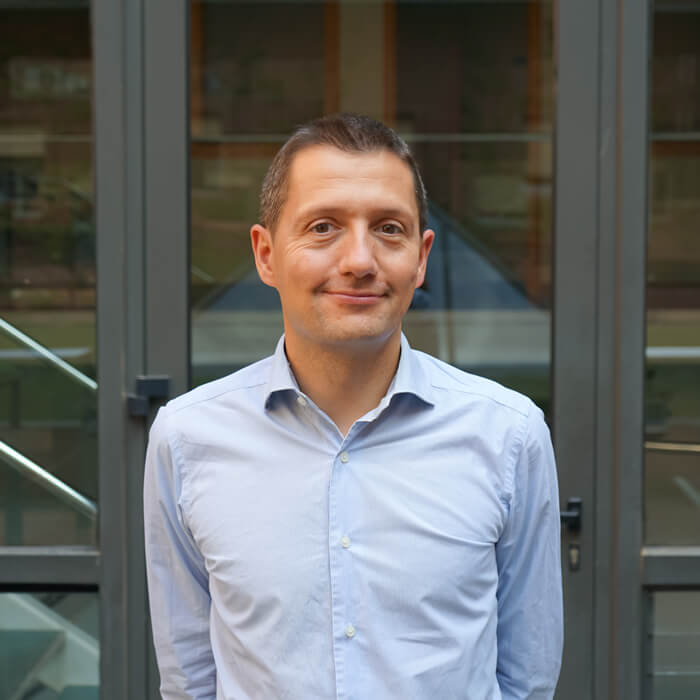
Albert Fornells Herrera, PhD
Department of Mathematics and Data Analytics
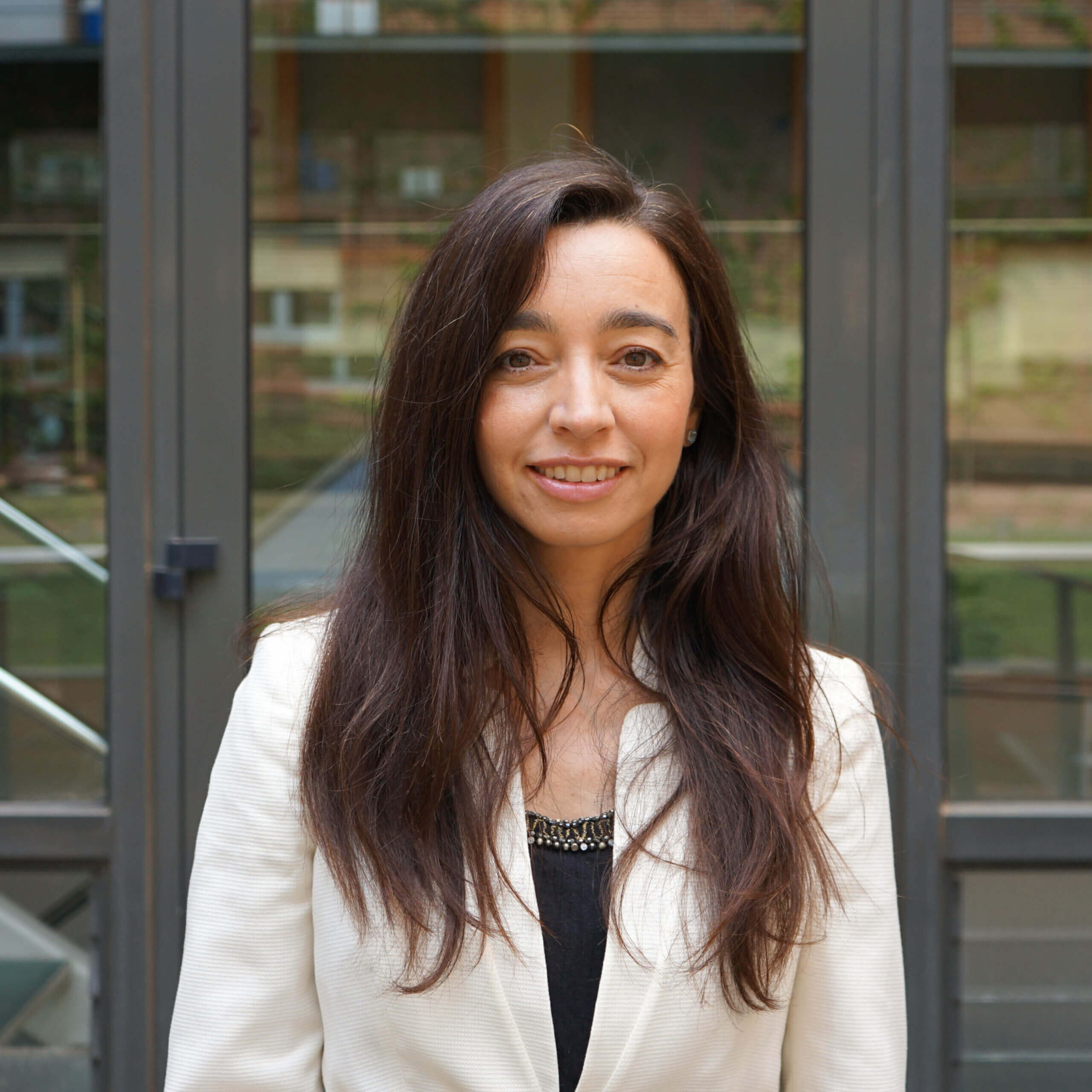
Cristina Montañola Sales, PhD
Department of Mathematics and Data Analytics
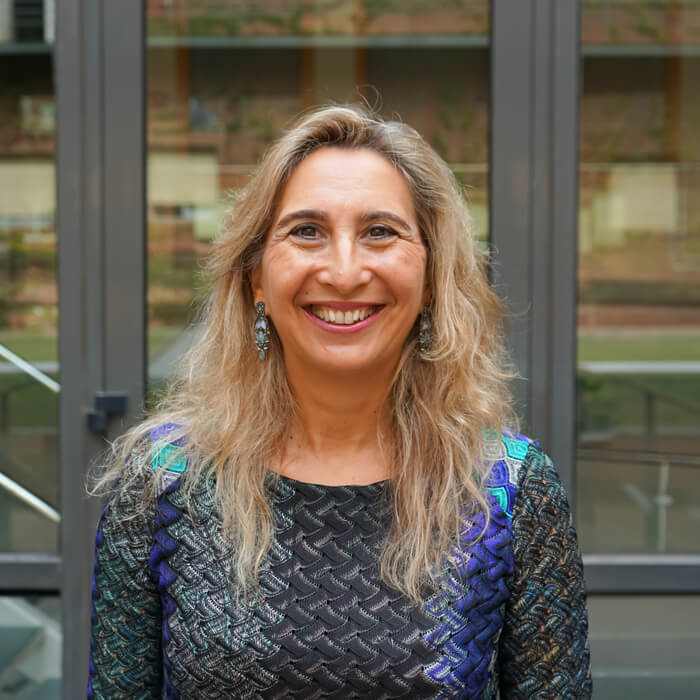
Daniela Mónica Freund de Klumbis, PhD
Department of Tourism and Hospitality Management
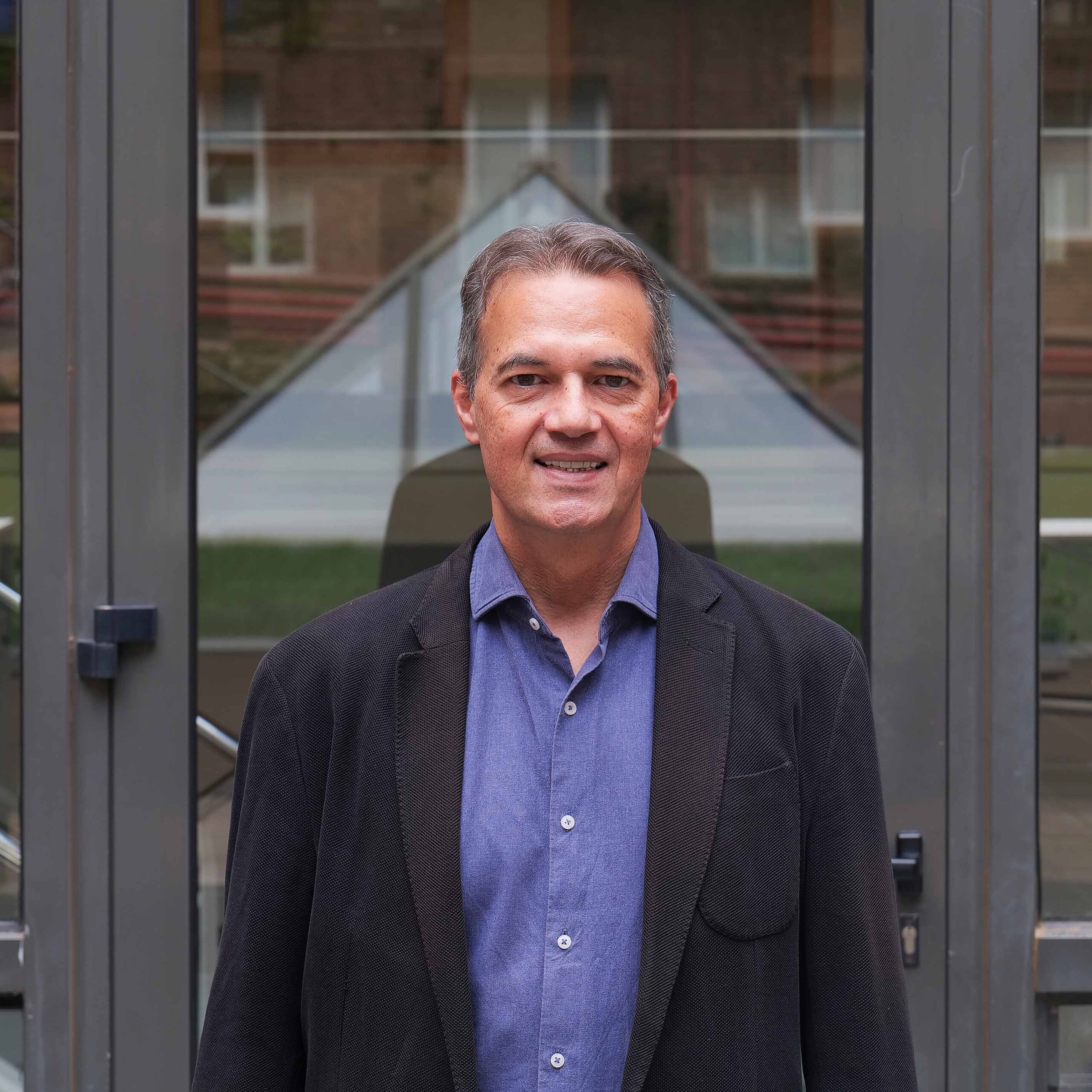
David Castillo Merino, PhD
Department of Economics and Finance
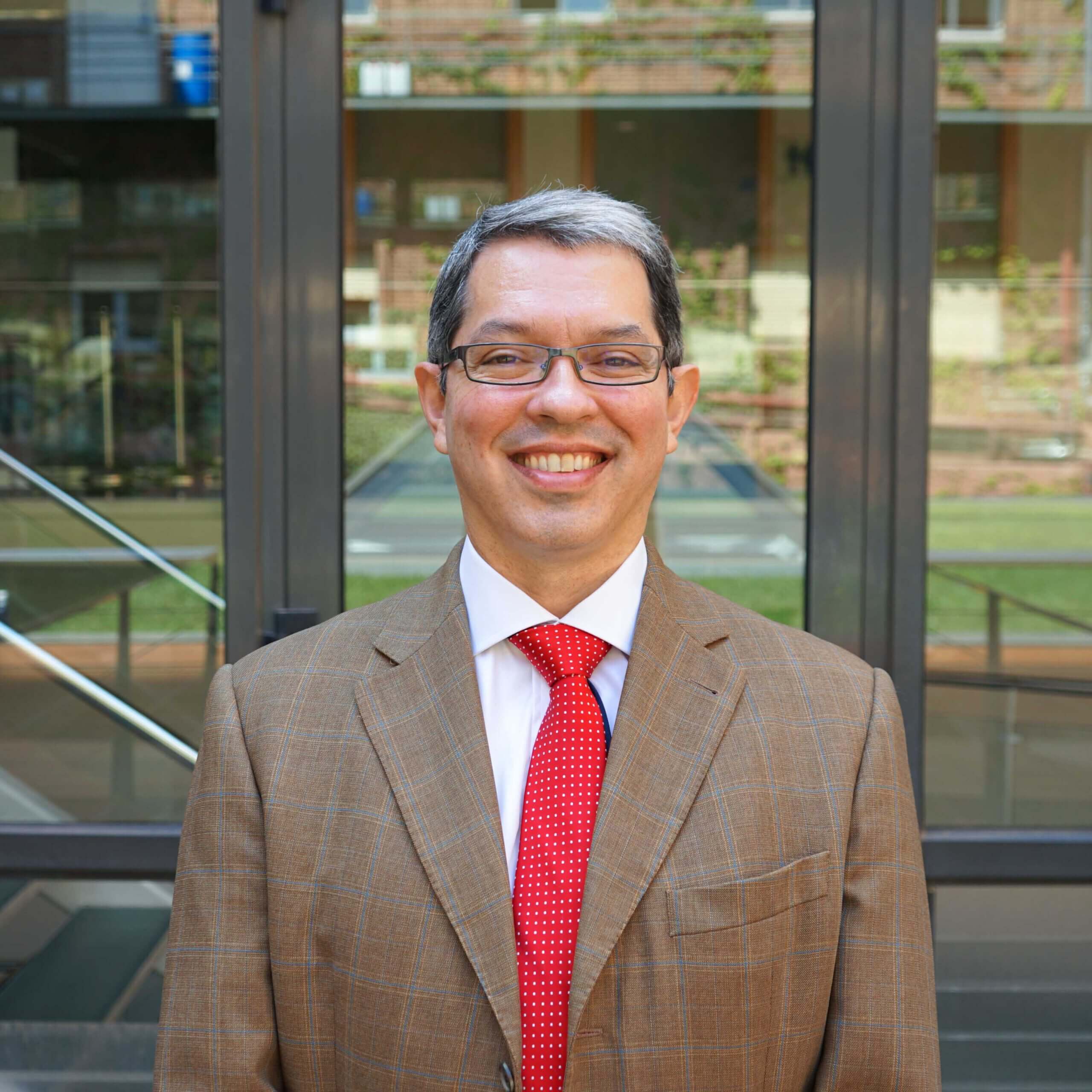
Flavio Vasconcellos Comim, PhD
Dean of the IQS School of Management and Department of Ethics and Christian Thought
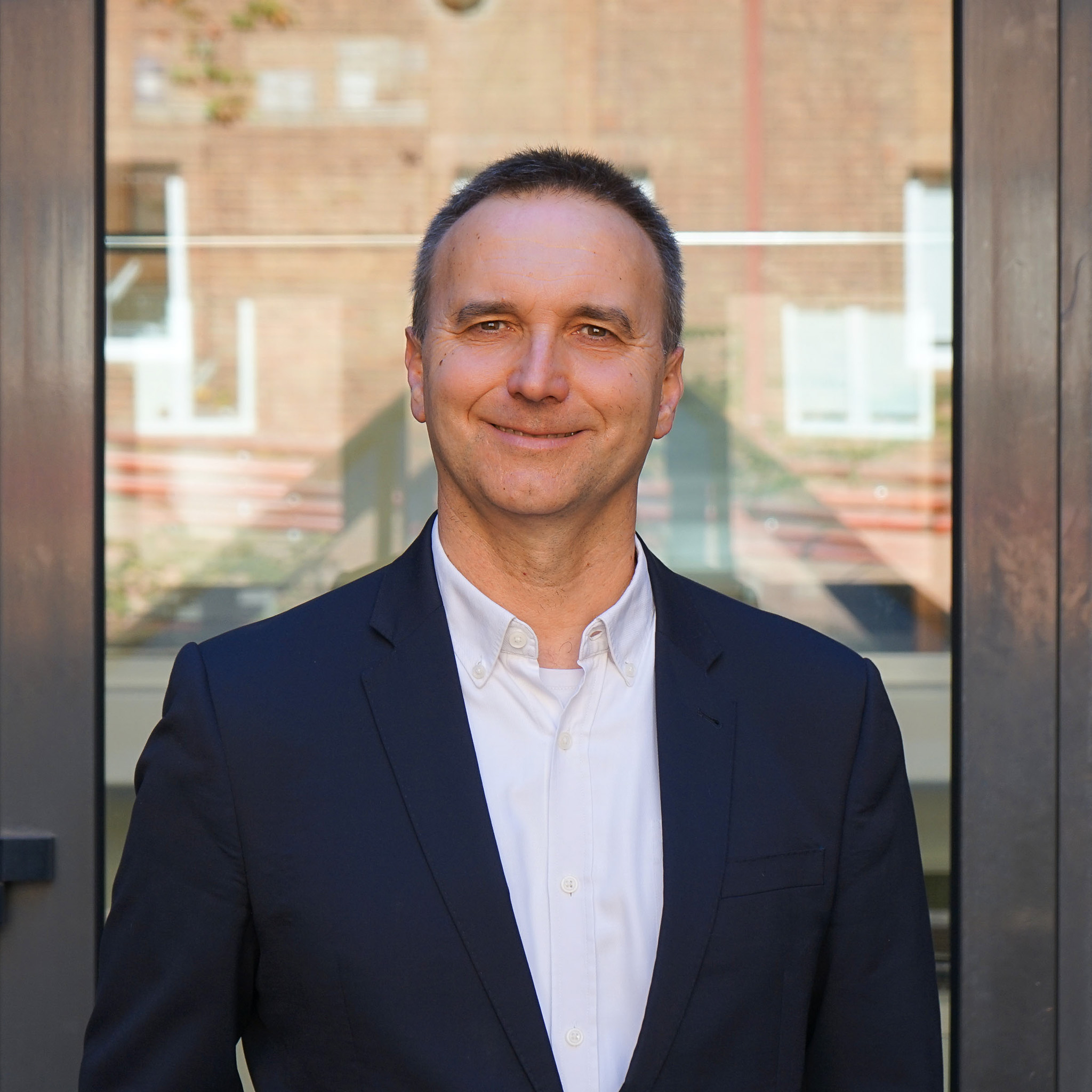
Francesc Prior Sanz, PhD
Department of Economics and Finance
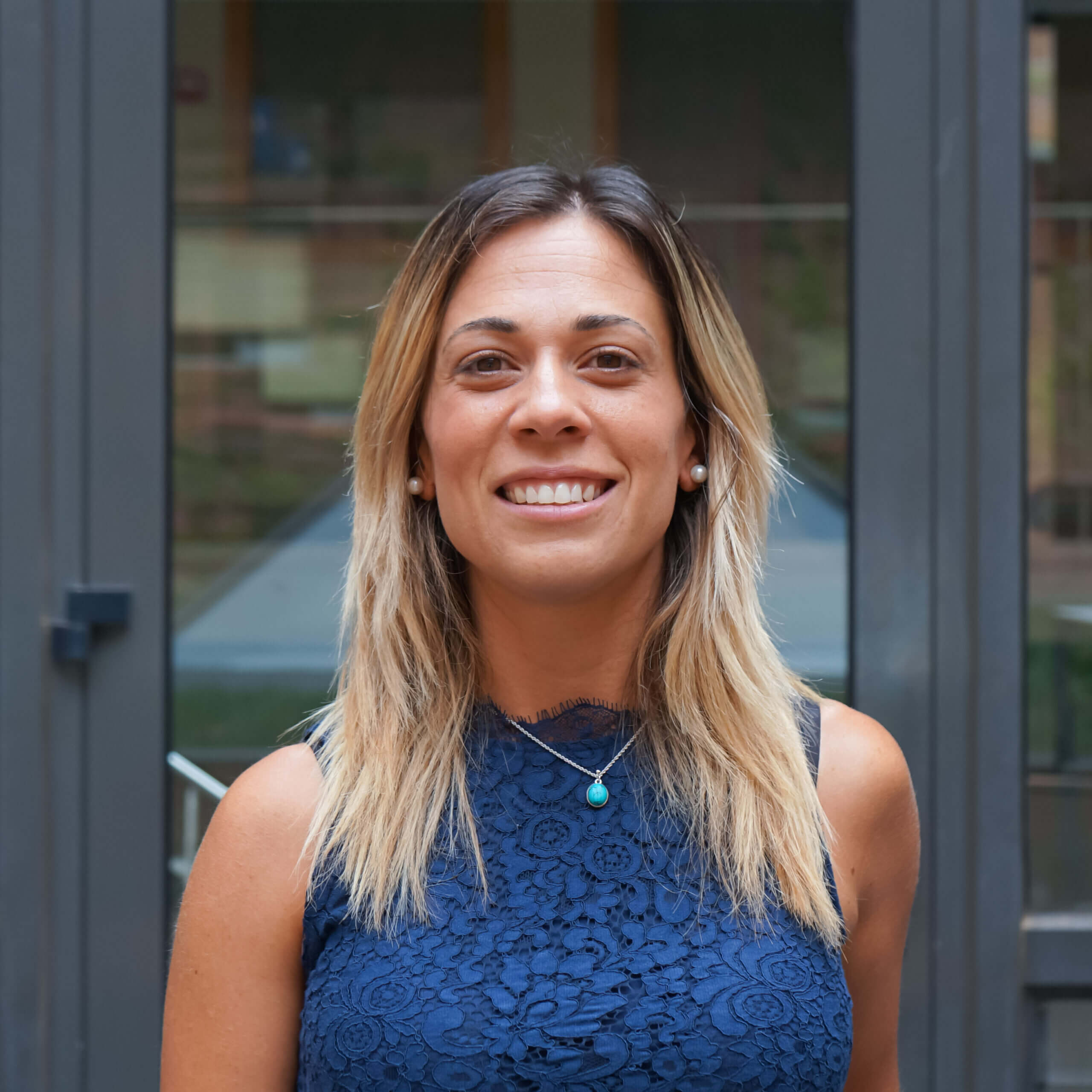
Gilda Hernández Maskivker, PhD
Department of Tourism and Hospitality Management
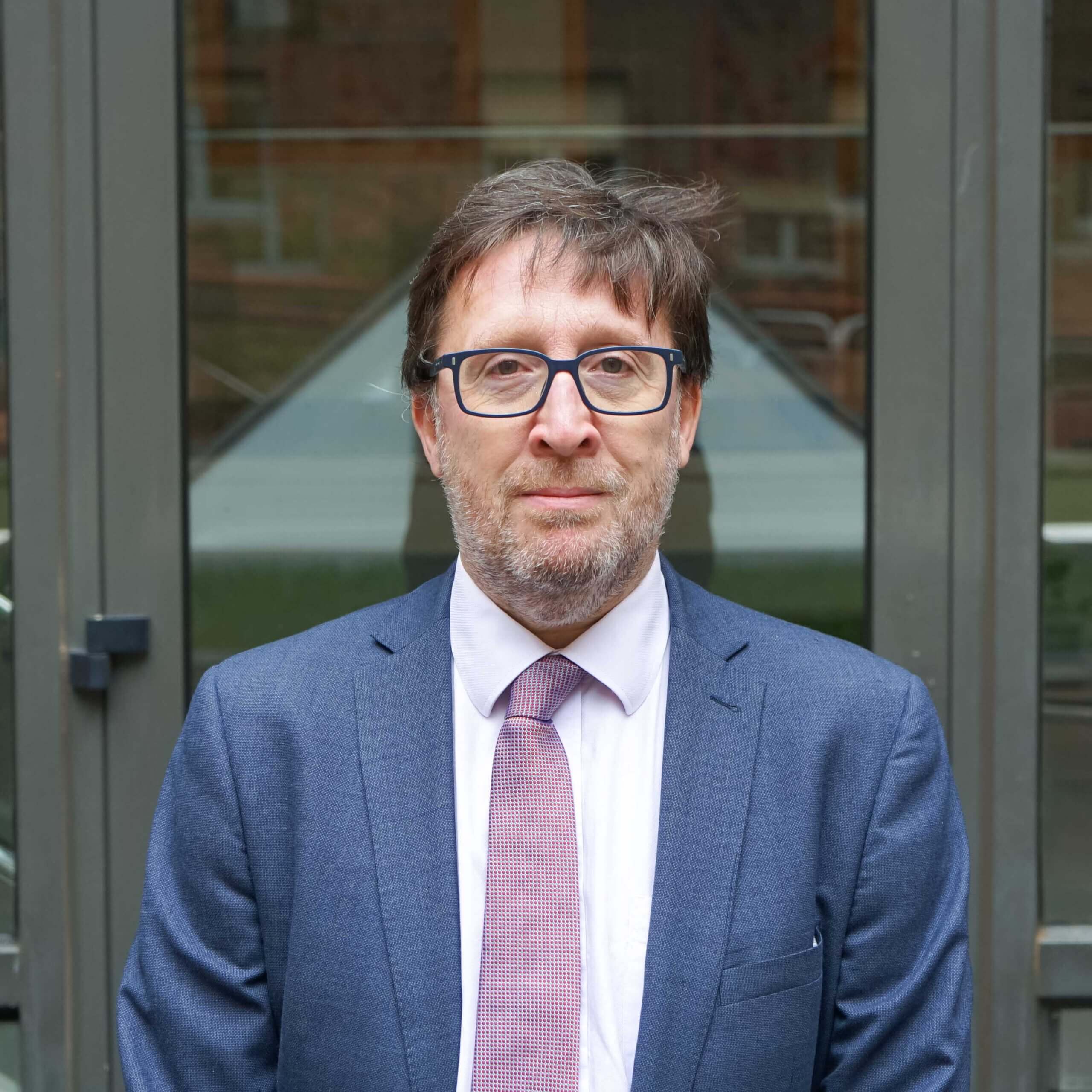
Gonzalo Rodríguez Pérez, PhD
Department of Economics and Finance
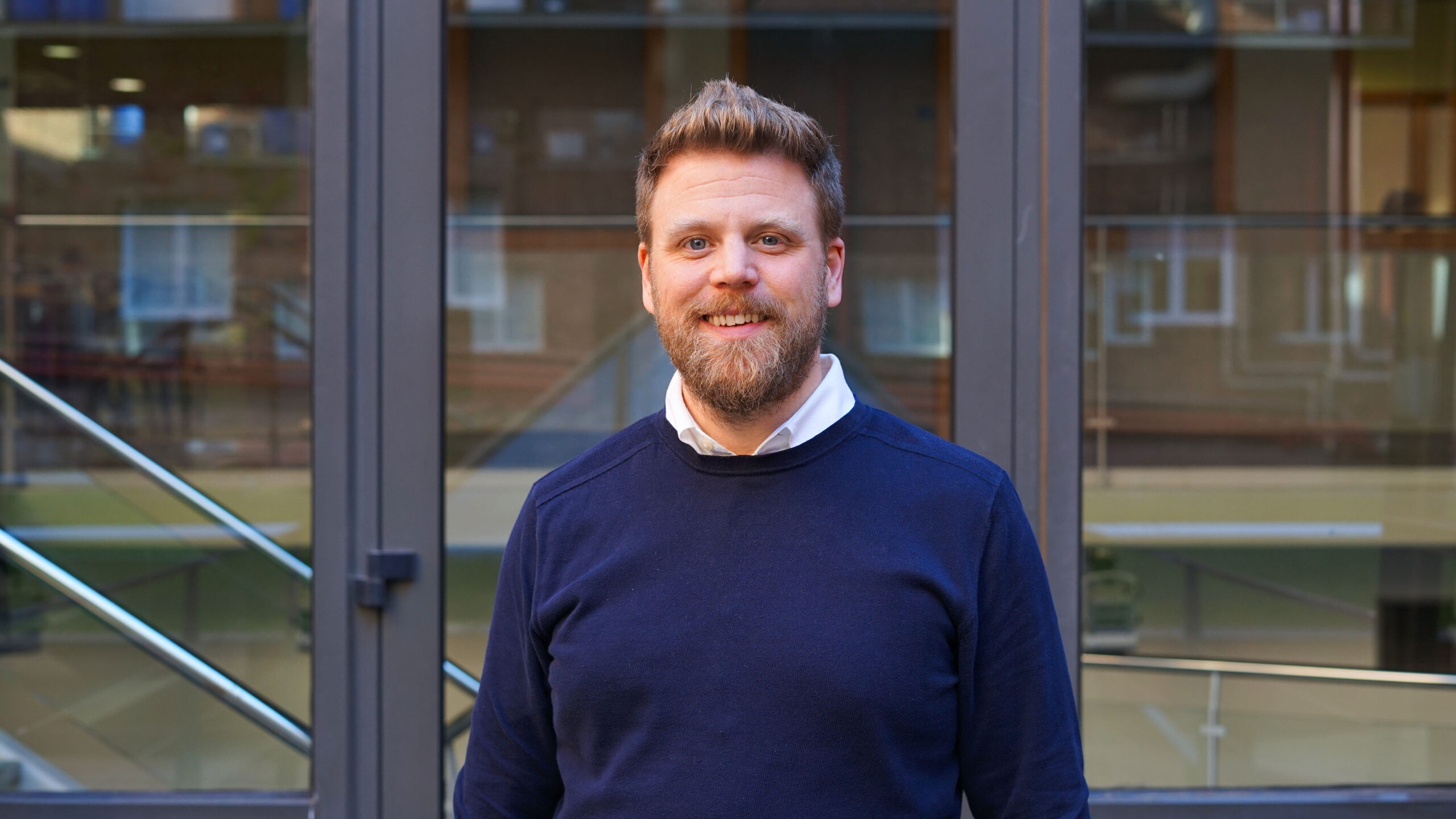
Jan-Hinrich Meyer, PhD
Department of Business Management
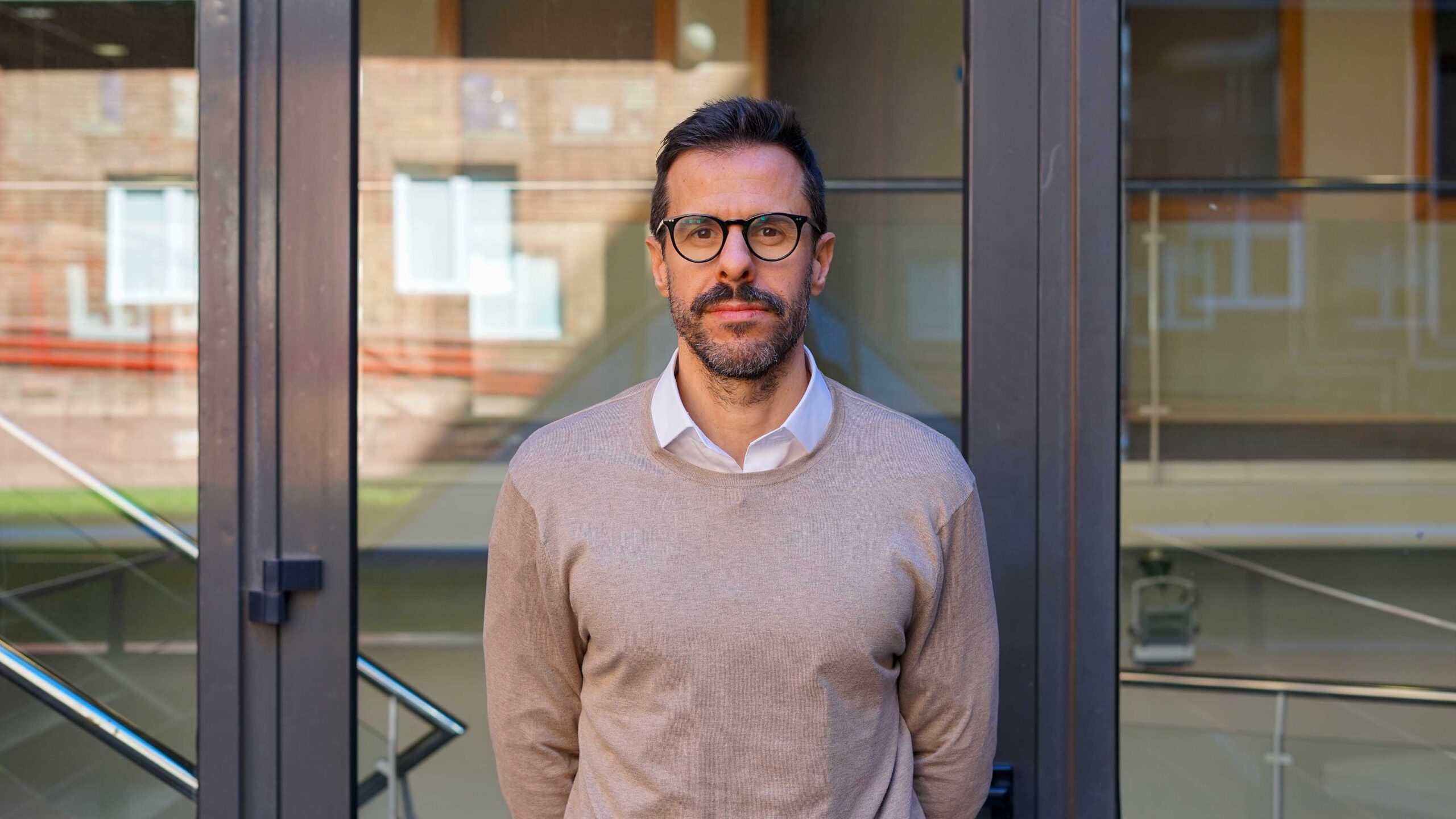
Jorge Matute Vallejo, PhD
Department of Business Management
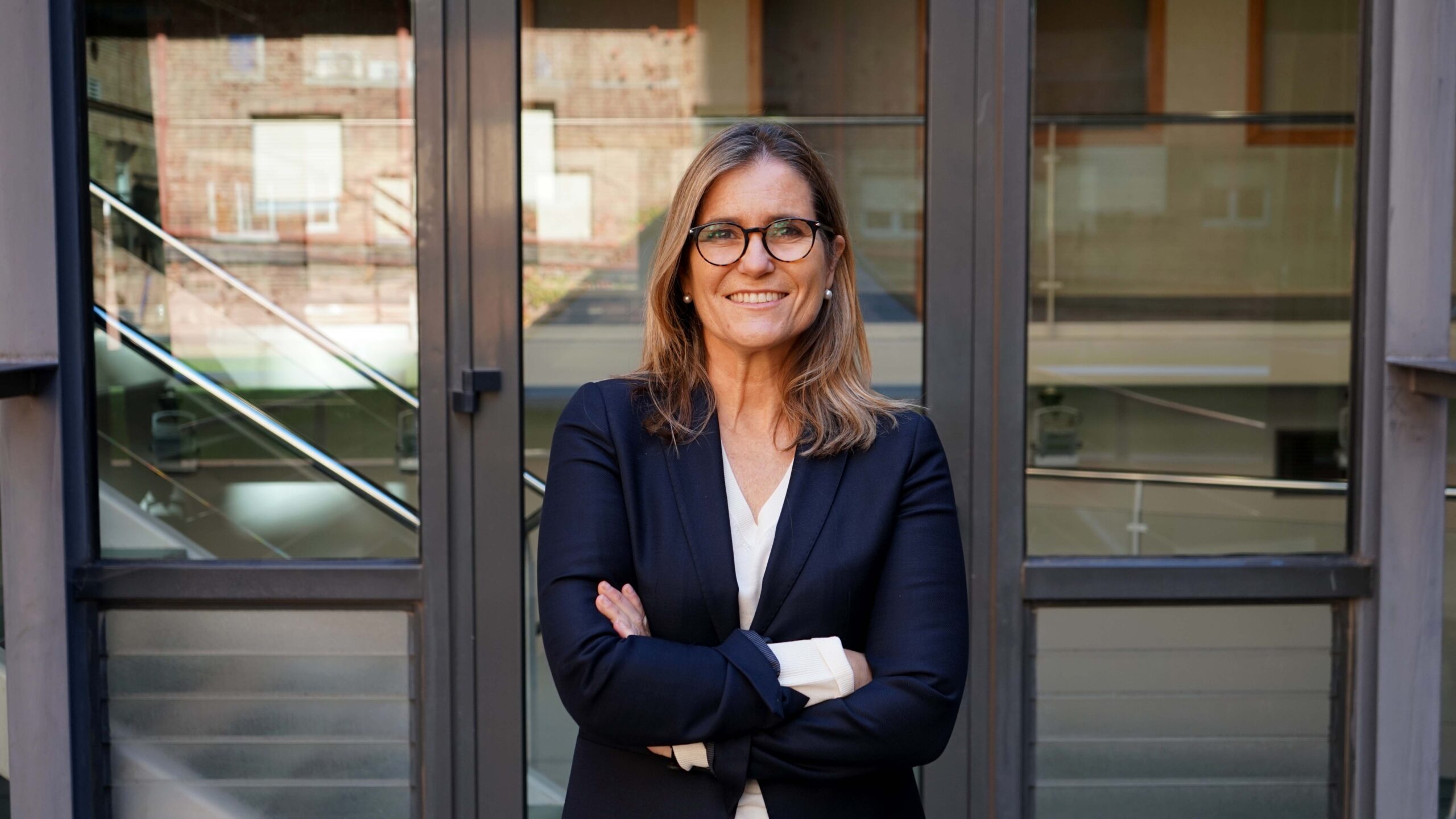
Mª Belén Derqui Zaragoza, PhD
Dean’s Office of the IQS School of Management and Department of Business Management
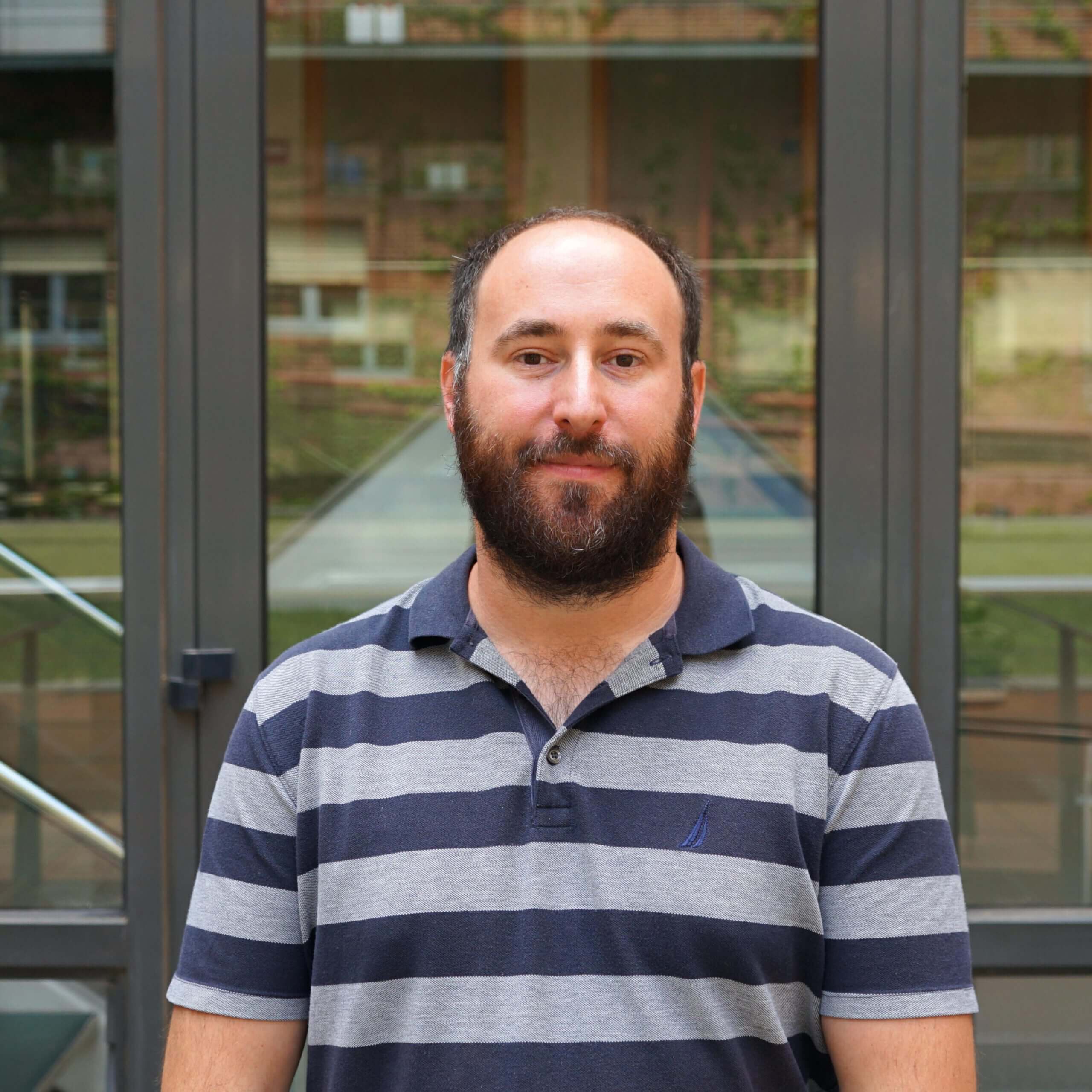
Mihály Tamás Borsi, PhD
Department of Economics and Finance
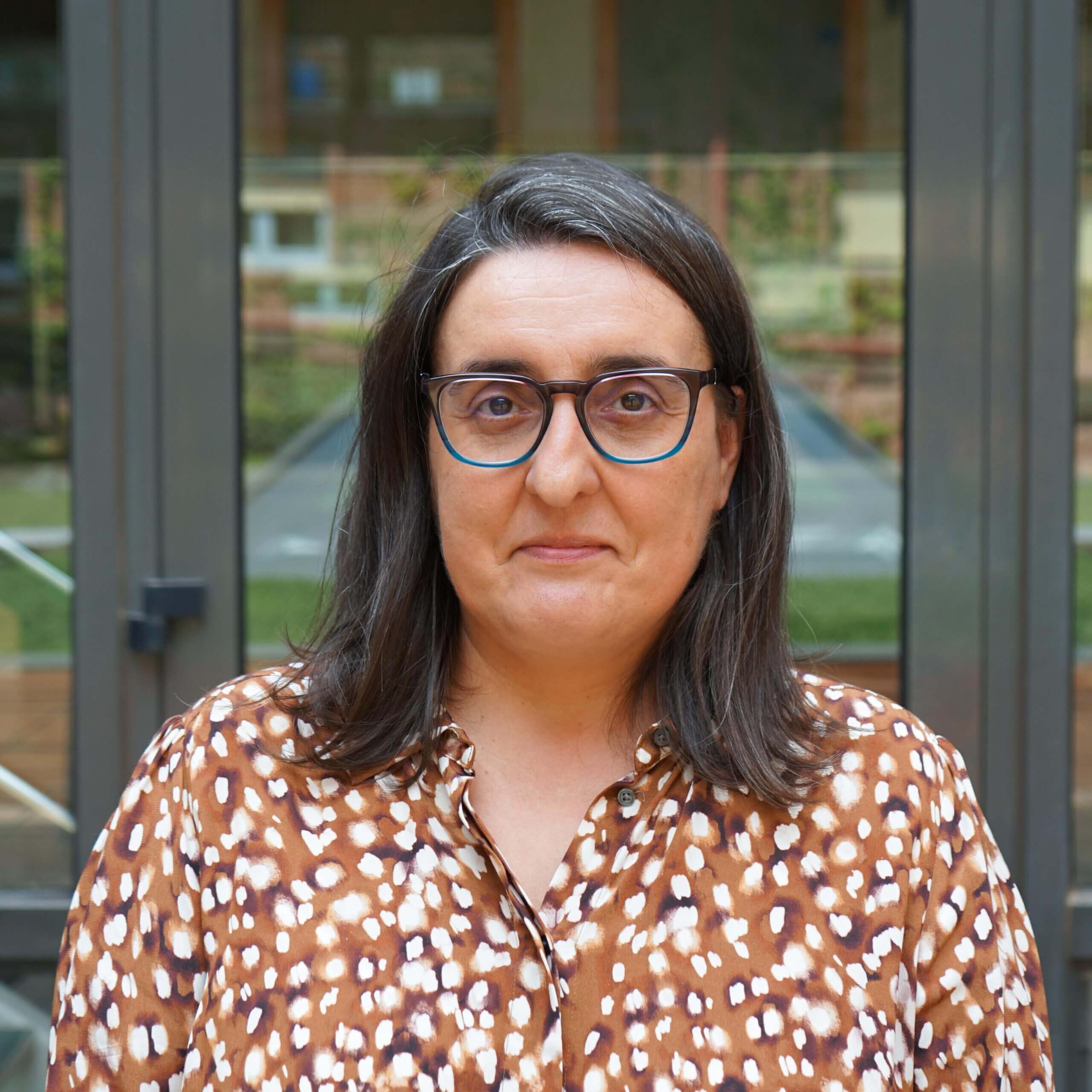
Mònica Martínez Blasco, PhD
Department of Economics and Finance
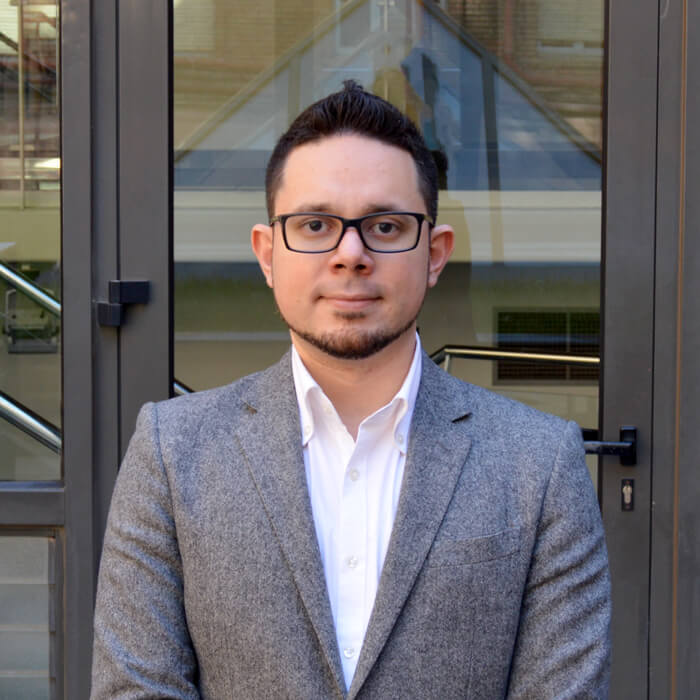
Octasiano Miguel Valerio Mendoza, PhD
Department of Mathematics and Data Analytics

Ramon Xifré, PhD
Department of Economics and Finance
Doctoral Thesis
The doctoral thesis consists of an original research project conducted by the doctoral student in a field of knowledge specific to the doctoral programme in which he/she is enrolled, and which enables him/her to work autonomously in the field of R&D&i.
A combination of research papers published by a doctoral student may also be submitted for evaluation as a doctoral thesis. The combined research papers must fall within the doctoral student’s research plan as a single work, and be recorded in the doctoral student’s activity file. The combined research papers must consist of a minimum of three published or accepted articles, book chapters, or a book, and the doctoral student must be the lead author. Publications must have been accepted for publication after the student has started their doctoral studies. The number of authors in each included publication shall not exceed four.
If so, a detailed report will be required from the thesis supervisor(s) on each author’s contribution to the published work. Depending on the report submitted, the programme’s Academic Committee will decide whether or not to accept the thesis as a compendium of publications. In addition to the publications, the doctoral thesis must necessarily include: an introduction supporting the theme of the thesis, the objectives set out to be achieved, a global summary and discussion of the results, and the final conclusions.
Submitting the Thesis
Doctoral Thesis: Conventional Format or Compilation of Articles
The doctoral thesis is an original research project conducted by the doctoral candidate in any field of knowledge. It must follow a scientific structure and adhere to academic standards in the social sciences. The primary goal of the thesis is to train the candidate for independent research in the field of R&D and ensure the acquisition of the core competencies and skills required by current doctoral education regulations.
However, doctoral theses may also be submitted as a compilation of published articles. In this case, the thesis must include:
- A general introduction summarizing the published articles (minimum of three)
- The full citation and a link to each article in the institutional repository
- A statement of the doctoral candidate’s specific contributions
- The copy of papers
- Final conclusions integrating the research findings
- Reference list
For a thesis by paper compilation, the following requirements must be met:
- Only peer-reviewed publications indexed in internationally recognized scientific databases (WOS-JCR or Scopus Q1) may be included.
- Only published or formally accepted works may be part of the thesis.
- The publication acceptance date must be after the doctoral candidate’s first enrollment in the PhD program.
- The doctoral candidate’s affiliation with Universitat Ramon Llull (URL) must be clearly stated in all included publications.
- All articles in the compilation must be open access and archived in the institutional repository (DAU) in the appropriate version.
Procedures for the Doctoral Thesis Defense
Once the doctoral thesis is complete, the doctoral student must request authorization from the Academic Committee of the Program to initiate the defense process. This request must have the explicit approval of the thesis director and be supported by a reasoned evaluation report. The request should be submitted via email, along with the following documents:
- A PDF of the thesis manuscript
- The Doctoral Activities Document (DAD) with relevant certificates
- A proposal and justification for the tribunal composition, prepared by the supervisor
- Proof of acceptance or publication of at least one WOS-JCR indexed article
The Academic Committee of the Program will then request:
- Three reasoned reports from doctoral-level researchers with accredited expertise in the thesis’s field of knowledge, OR
- Four reasoned reports from doctoral-level researchers with accredited expertise, including at least one researcher from a foreign university (outside Spain), for candidates seeking the International Mention
The deadline for completing these reports must not exceed three weeks. A favorable endorsement in the reports is required for the defense process to proceed.
If the reports contain contradictory evaluations or observations from reviewers, the Academic Committee of the Program may:
- Request the doctoral student to revise or amend specific issues in the thesis
- Require new evaluation reports from additional experts in the field
Simultaneously, the doctoral student must coordinate with the General Secretariat to complete any necessary documentation and additional procedures on the MERIT platform to continue the process.
- In exceptional circumstances, as determined by the programme’s Academic Committee, regarding the participation of companies in the doctoral programme, the existence of confidentiality agreements with companies, or the possibility of producing patents that fall within the contents of the thesis, a procedure will be enabled that ensures that the thesis defence will remain private and that the subsequent archiving shall remain confidential.
- The jury may propose that the thesis be designated “cum laude” if an affirmative secret vote is unanimously cast. Votes will be counted in a session held apart from the doctoral thesis defence. This session shall be held behind closed doors following the conclusion of the thesis defence and the notification of the overall grade.
- The Secretary of the jury shall draw up the minutes of the procedure awarding the degree of Doctor, which shall include information relating to the the thesis defence and the grade. The votes referred to in the preceding paragraph shall be enclosed with the minutes of the meeting.
- If the doctoral student has applied for the International Endorsement for the Doctoral Degree, the Secretary of the jury shall indicate in the minutes of the thesis defence certification that the requirements set out in Article 15 of these regulations have been met.
- The completed minutes shall be sent to the IQS Registrar’s Office.
Thesis Evaluation and Defense Process
The Academic Committee of the Doctoral Program (CAPD), based on the supervisor’s proposal, will prepare a reasoned and justified document recommending the committee for evaluating the doctoral thesis. This document will be submitted to the Doctoral Committee of Universitat Ramon Llull for approval, along with the proposal to initiate the thesis deposit process.
The committee will consist of three doctoral-level researchers with accredited research experience, at least two of whom must be external to the Universities of Deusto, Comillas, and Ramon Llull. Additionally, the proposal must include two substitute members who meet the same qualifications. The composition of both full and substitute members must ensure gender balance in accordance with positive discrimination policies.
The thesis director(s) and tutor may not be part of the committee, except in cases where the thesis is presented within a bilateral joint supervision agreement with a foreign university, provided the agreement explicitly allows for this exception.
The chair of the committee will be the professor with the highest academic rank and longest tenure in active service. Once the tribunal is approved, the Academic Committee of the Program will formally notify its members and send them:
- A copy of the thesis
- The doctoral candidate’s activity document (DAD)
- An indication, if applicable, that the thesis qualifies for the International Mention in the Doctoral Degree
The comittee will use the doctoral candidate’s activity document as a qualitative assessment tool, complementing the evaluation of the thesis itself.
Thesis Defense Process
The chair of the committee will coordinate with the full committee members, the thesis director, and the tutor (if applicable) to set the date, time, and location of the defense ceremony. The CAPD is responsible for ensuring that the defense is publicly announced in advance.
Before the defense, the committee must convene with all three full members present or, if necessary, with appropriate substitutes. The Secretary of the committee will document the formation of the tribunal in an official constitution report.
The thesis defense will be conducted as follows:
- The defense takes place in a public session on a school day.
- The doctoral candidate will present and defend their research before the tribunal.
- For multi-university or external collaboration programs, the defense will be held in accordance with the relevant agreements.
- At the end of the committee’s questions, attending doctoral researchers may ask questions, following the procedures set by the tribunal chair.
Thesis Evaluation and Grading
After the defense, each committee member will submit a written report evaluating the thesis. Behind closed doors, the tribunal will determine the overall grade to be awarded. The tribunal chair will then publicly announce the final grade.
In exceptional cases, as determined by the Academic Committee of the Program, a confidentiality procedure will be implemented to protect the thesis content. This applies in cases involving company participation, confidentiality agreements, or potential patents derived from the research. The confidentiality procedure ensures restricted access to both the defense session and the institutional repository filing.
“Cum Laude” Distinction and Final Documentation
The committee may propose that the thesis be awarded the distinction of “cum laude”, provided all tribunal members unanimously cast a positive secret vote. The vote counting takes place in a separate closed-door session after the public defense and grading announcement.
The Secretary of the tribunal will draft the official minutes, detailing the thesis defense process and the final grade. The cum laude votes will be attached to this report. If the doctoral candidate has applied for the International Mention in the Doctoral Degree, the Secretary will include a certification confirming compliance with the requirements of Article 15 of the regulations.
All completed certification documents will be submitted to the General Secretariat.
International Endorsement
1. The reverse side of a PhD diploma may include the “International Doctorate” endorsement provided that the following conditions are met:
- During the educational period necessary to earn the doctoral degree, the doctoral student has completed an international exchange of at least three months outside Spain at a prestigious institution of higher education or research centre studying or carrying out research work. The exchange cannot be in the doctoral student’s country of habitual residence. The exchanges and activities will be approved by the supervisor of the PhD programme and authorized by the academic committee and will be included in the doctoral activity file.
- Part of the doctoral thesis, at least the summary and the conclusions, must be drafted and presented in one of the usual languages for scientific communication in the programme’s field of knowledge, other than any of the official languages in Spain, except in cases where the exchange, reports, and experts come from a Spanish-speaking country.
- A minimum of two experts belonging to an institution of higher education or non-Spanish research institute must provide a written report on the thesis.
- At least one expert PhD belonging to a foreign institution of higher education or research centre other than the person supervising the exchange referred to in paragraph (a) must form part of the thesis defence jury.
2. The application for the “International Doctorate” endorsement must be presented when the student submits their thesis, along with the documentation proving that the aforementioned requirements have been met. The programme’s Academic Committee will review the suitability of the experts who are reporting on the thesis with a justified written report.
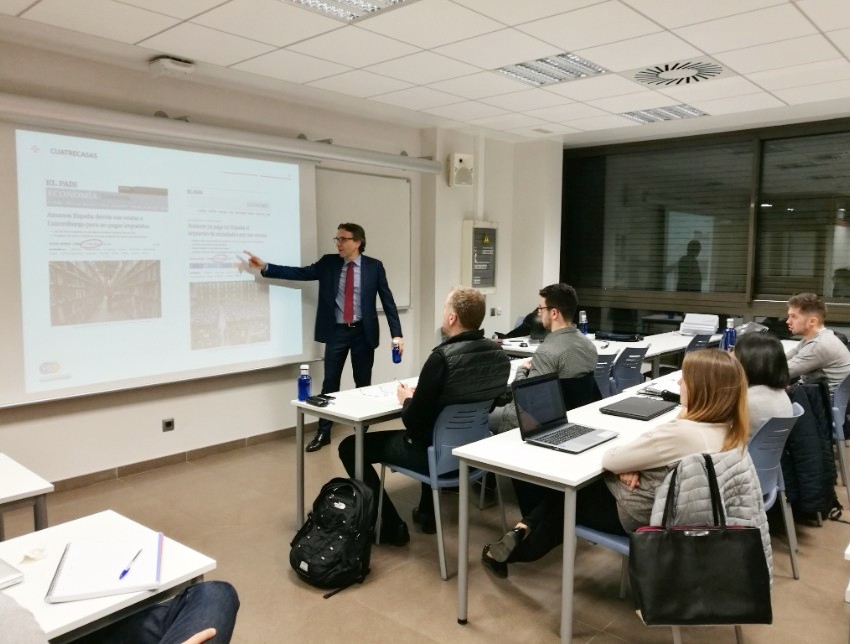
Rules for remaining in good standing
Summary of Rules for Continuation in the Doctoral Program in Business and Territorial Competitiveness, Innovation, and Sustainability (CETIS) (RD 99/2011)
Doctoral students must maintain consistent daily research activity as approved by the department, under the supervision of their thesis director. Additionally, they are expected to participate in teaching and research collaborations proposed by IQS, with the approval of their thesis director. The student’s progress will be monitored and evaluated at the end of each academic year, and satisfactory performance is required for continued enrollment in the program.
The standard duration for completing a doctoral thesis is four years full-time. However, in exceptional cases and with prior authorization from the Academic Committee, students may pursue part-time doctoral studies, which may extend to a maximum of seven years from the date of enrollment to the submission of the thesis.
If the thesis has not been submitted before these deadlines, the doctoral candidate may request a one-year extension, subject to approval by the Academic Committee, under the conditions established by the program. Additionally, for doctoral candidates with a disability of 33% or higher, the maximum duration is six years full-time and nine years part-time.
Doctoral candidates may request temporary leave from the program for up to two years. Such requests must be submitted with justification to the Academic Committee of the Doctoral Program (CAPD), which will issue a decision. Furthermore, situations such as temporary disability, parental leave (birth, adoption, foster care), pregnancy-related risks, gender-based violence, or other circumstances covered by current regulations will pause the enrollment period.
Students will be withdrawn from the program if they do not defend their doctoral thesis within the allowed time frame.
Each year, the Academic Committee evaluates students’ progress based on their research plan and activity report, along with assessments from their thesis director and tutor. If significant deficiencies are identified, the student will have up to six months for re-evaluation. If deficiencies persist, the Academic Committee will issue a reasoned report, after consulting the student, and the student will be permanently withdrawn from the program.
Handling complaints and suggestions
Dr Ramon Palau Saumell
IQS – Ramon Llull University
Via Augusta, 390
08017 Barcelona
Tel: (+34) 932.672.000
Fax: (+34) 932.056.266
email: ramon.palau@iqs.url.edu
Results, Quality and Accreditations
Verification, monitoring and accreditation
Verification/Modification
- Verification report
- ANECA assessment of the Verification/Modification request
- Resolution of the verification
- Link to the Registry of Universities, Centers and Degrees (RUCT)
Monitoring
University monitoring reports
- Report. Academic year 2020-21
- Report. Course 2019-20
- Report of the degree. Course 2017-18
- Report of the degree. Course 2016-2017
- Report. Course 2014-2015 and 2015-2016
- Report. Academic year 2021-2022
- Report. Academic year 2022-2023
- Report. Academic year 2023-2024
Feedback from UNIBASQ
Accreditation
Research lines in the PhD programme
This PhD programme is structured around two primary research lines that in turn include several sub-areas. Click on the Faculty tab for more information on the research lines of the programme’s professors.
The primary research line “Business and territorial competitiveness” addresses research carried out in the following areas:
- Conceptualizing and measuring aporophobia
- Determinants, dynamics, and inequalities of human capital and educational attainment in China
- Economic and educational inequalities in special economic zones and open cities in China
- The links between infrastructure development, inequality, and urban sustainability
- The links between corruption, educational inequalities, and the middle income trap
- Economic policy and public management
- Sustainability management in the public and private sectors
The primary research line “Organizational management and business competitiveness” addresses research in the following fields:
- Consumer Behavior (gamification, voice assistants, social media, food consumption, food waste reduction, vegetarian and vegan consumer behavior, tourist behavior, sport consumption, tourist behavior)
- Services Marketing
- E-Commerce & Retailing
- Marketing of tourism destination
- Resident attitudes of tourism destinations
- Responsible and sustainable tourism
- Strategic management (corporate, competitive, internationalization, and digital strategies)
- Corporate social responsibility
- Aporophobia
- Determinants, dynamics, and inequalities of human capital and educational attainment in China
- Data science and big data
- Decision support systems based on artificial intelligence
- Disruptive technologies in society’s new challenges
- Corporate Governance
- ESG reporting & performance
- Investors’ reaction of any corporate event (event study method)
- Investor’s sentiment analysis
- Merger & acquisition (M&A)
- Finance and fintech
- Gender studies and social entrepreneurship
IQS School of Management Research Groups
Research group focused on the study of consumer behavior, digital marketing, sustainability, digital transformation, tourism, and leadership.
Researchers: Dr. Ramon Palau Saumell (Principal Investigator), Dr. Jorge Matute Vallejo, Dra. Belén Derqui. Dr. Jan-Hinrich Meyer, Dr. Noelia Jiménez-Asenjo, Dr. José Luis Sánchez.
Research areas:
- Brand image, social media
- Structural equations in marketing
- Consumer Behaviour
This group’s research has a clear applied focus and aims to be useful for regulators to establish policies that improve good governance mechanisms.
Researchers: Dr Josep García Blandón (lead researcher), Dr Sílvia Bou Ysàs, Dr David Castillo Merino, Dr Mónica Martínez Blasco, and Dr Gonzalo Rodriguez Pérez.
Research areas:
- Audit quality
- Executive compensation
- Limits of good governance codes
Research group on higher education teaching in specific disciplines (STEM and Business). This group’s research objectives are to improve higher education knowledge and best practices in specific disciplines (science, technology, engineering, mathematics, and business) and employ qualitative techniques to analyse scientific and business data.
Researchers: Dr Jordi Cuadros Margarit (lead researcher), Dr Marianna Bosch Casabò, Dr Lucinio González Sabaté, Dr Francesc Martori Adrian, Dr Antoni Olivé Tomàs, and Dr Vanessa Serrano Molinero.
Research areas:
- Development and educational use of simulations
- Analysis based on tracing and quantitative methods
- Use of modelling and teaching to research benchmark educational strategies
- Qualitative techniques to analyse scientific and business data
The Social Economics and Ethics group (or SEE) brings together IQS researchers collaborating on the interface of issues that entail both an ethical background and a social economic aspect, such as poverty, inequality, education, aporophobia, social exclusion, convergence, sustainability, among other issues.
Researchers: Dr Flavio Comim (IP), Dr Octasiano Valério, Dr Mihály Borsi, Dra Cristina Montañola, Dr Francesco Prior, Dr Llorenç Puig, Dr Oriol Quintana, Dr Xavi Casanovas.
Research areas:
The group is currently working on three distinct research fields, namely, i) aporophobia, ii) Chinese development model and iii) economic growth and dynamic convergence. Each field represents a cluster of different projects. More specifically, under the aporophobia umbrella there is a conceptual investigation about the characteristics of aporophobia, a project about the link between aporophobia and artificial intelligence and a project about the elaboration of an implicit association test (IAT) of aporophobia, funded by Ignited. We are also working on aporophobia and social simulation models. Then, under the Chinese development model umbrella we are working on the impact of preferential policies on inequality in China, with the support of the European Commission. Finally, under the dynamic convergence umbrella there is an investigation of the evolution of human capital in China and the development of indicators about quality and quantity of education, in addition to an analysis of convergence of countries’ HDI.
The Tourism, Sustainability, and Innovation Research Group focuses its research on the following areas: sustainable and responsible tourism along with hotel and hospitality management.
Researchers: Dra. Gilda Hernández (investigadora principal), Dra. Daniela Mónica Freund, Dra. Itziar Ramirez, Dr. Ricard Santomá, Dr. Jordi Sales, Dr. Francesc Teixidó, Sr. Jorge Peralta.
The group’s research activity focuses on the following research lines:
Responsible and sustainable tourism:
Responsible destination management
Tourism ethics and governance
Positive and negative impacts of tourism on destinations
Responsible and sustainable behaviour of tourists
Current trends in responsible tourism
Volunteer tourism
Hospitality management:
Organizational psychology in the hospitality industry
CSR for tourism companies
Hospitality and best practices
Inclusive tourism: gender and tourism, accessible tourism
Vocational training in tourism
Disruptive technologies in tourism
Current business management trends in tourism
More information











